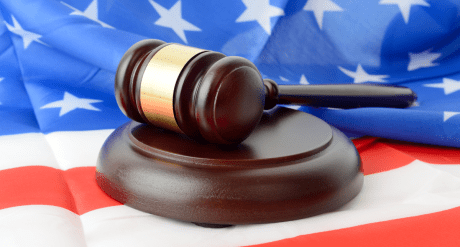
The Latest On The S In ESG: EU Proposes Ban On Products Made With Forced Labour

Authored by Emma Bichet & Selma Abdel-Qadar, Cooley
The European Commission has adopted a proposal for a groundbreaking Regulation prohibiting sales, imports and exports of products made with forced labour.
The new rules will have a huge impact on product manufacturers, since they will have to make sure that forced labour is not used throughout their supply chains if they want to sell their products in the EU or export them outside the EU. It is also one of the first EU proposals we have seen that would ban products for reasons that are unrelated to their safety or compliance status.
The proposal complements other EU rules aimed at improving supply chain transparency and curbing forced labour, such as the upcoming Directives on Corporate Sustainability Reporting and Corporate Sustainability Due Diligence.
Read our brief guide to understand what is being proposed.
What Is It Called?
Proposal for a Regulation of the European Parliament and of the Council on prohibiting products made with forced labour on the Union market (“the proposed Regulation”).
What Is Being Proposed?
The proposed Regulation will prohibit placing and making available on the EU market and exporting from the EU products for which there is a “substantiated concern” that they have been made with forced labour.
Both EU and non-EU companies will be banned from selling or distributing products made with forced labour in the EU. Exports of products made with forced labour in the EU are also banned.
What Is Forced Labour?
Forced labour is defined as: “all work or service which is exacted from any person under the menace of any penalty and for which the said person has not offered himself voluntarily”.
What Products Are Covered?
The proposal covers all products at any stage of the supply chain, i.e. whether extracted, harvested, produced or manufactured.Member States will enforce the ban. There is a two-stage procedure for Member States to determine whether there is a substantiated concern that products sold on the EU market or exported from the EU are made with forced labour:
- A preliminary investigation, during which economic operators will be given the opportunity to submit information on actions taken to identify, prevent, mitigate or end risks of forced labour in their operations and value chains.
- An investigation culminating in a decision prohibiting the placing and making available on the EU market and export of products made from forced labour, and ordering the withdrawal from the market and disposal of the concerned products.
For products entering or leaving the EU market, customs authorities can suspend or refuse the release for free circulation or the export of the product if they conclude that the products have been made with forced labour.
In order to facilitate the implementation and enforcement of the proposed Regulation, the European Commission will:
- Establish a database of forced labour risks in specific geographic areas or with respect to specific products;
- Issue guidelines on due diligence in relation to forced labour and information on risk indicators.
The proposal has now passed to the European Parliament and the Council for negotiation and adoption (which typically takes 1.5-2 years).
Who Will It Apply To?
The proposed Regulation will apply to economic operators, defined as natural or legal persons or associations of persons placing or making available on the EU market or exporting products, as well as Member States’ customs authorities and competent authorities designated as responsible for carrying out the obligations set out in the proposed Regulation.
Why Does It Matter?
The impact of the proposal should not be underestimated: it will cover all goods produced in or imported into the EU as well as exports, and will affect all sectors, including agriculture, textile, mining, manufacturing, etc.
The proposed Regulation has the potential to prove especially challenging for small and medium sized enterprises (which are not exempt), as well as industry actors with global supply chains.
Where Can I Find It?
The proposed Regulation can be found here.
Stay On Top Of Global ESG Regulations
This commentary is brought to you by Cooley, one of the world’s leading law firms for innovative companies. Cooley has built a global team of specialist products lawyers, led by some of the leading and best-recognized practitioners, who are able to provide strategic advice and practical solutions to global product safety and compliance issues. With access to an extensive network of leading local products lawyers in 140+ countries across six continents, Cooley is uniquely placed to advise its clients on product issues, wherever they arise.
Check out our latest whitepapers on Navigating the Maze of Environmental, Social & Governance Regulations: From Sustainable Products to Sustainable Finance and From Non-Financial to Corporate Sustainability Reporting: Accelerating ESG Disclosures in the EU or catch up on our on-demand webinar to learn more about ESG Reporting Obligations for the Modern Day Consumer Good
Stay Compliant With ESG Regulations
Learn how C2P can help you stay ahead of ESG regulatory changes and achieve uninterrupted market access.








